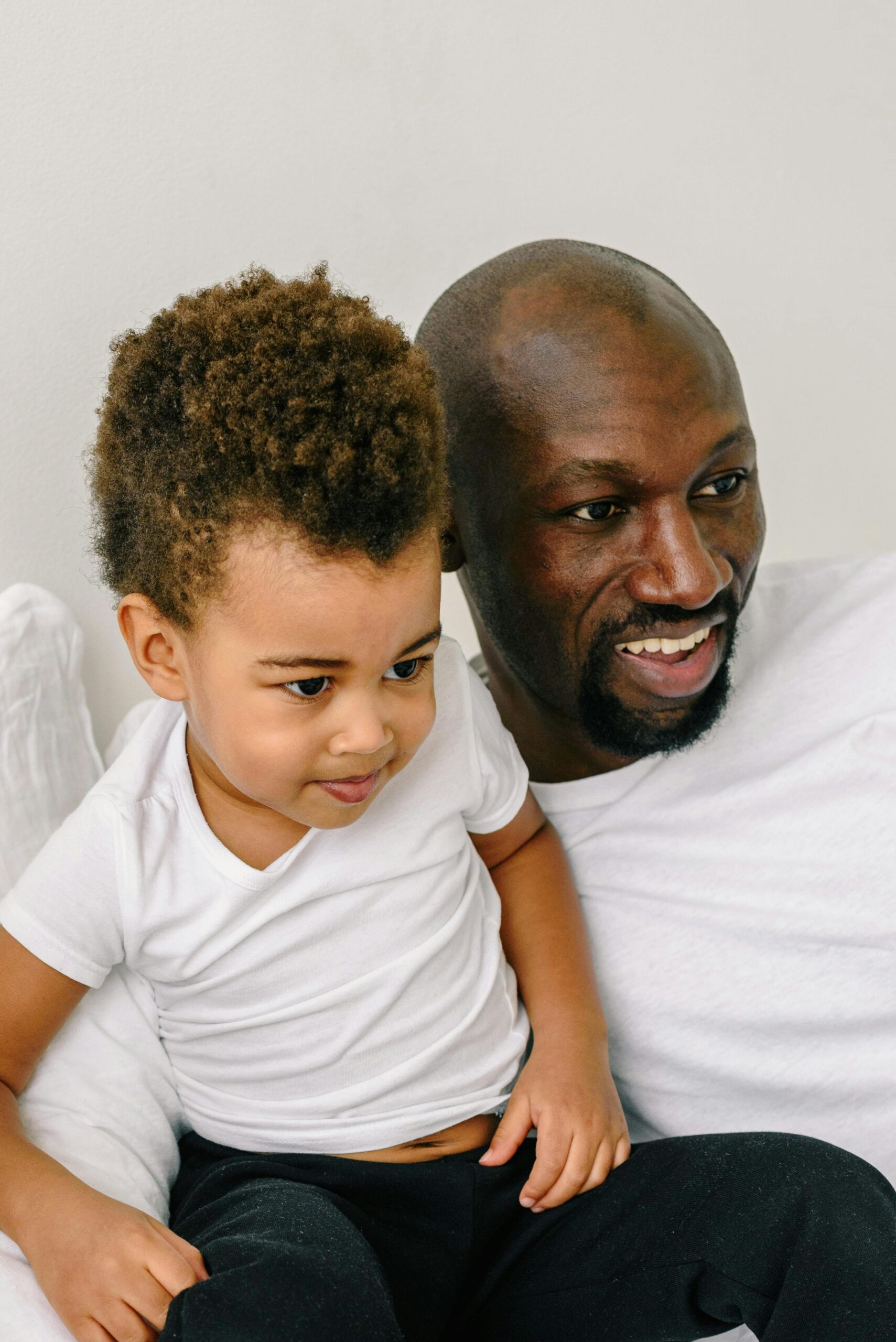How to Protect Your Children During a Divorce

Divorce is undoubtedly one of the most challenging experiences a family can face. While it marks the end of a marital relationship, it also ushers in a period of significant emotional, psychological, and logistical adjustments for everyone involved—especially children. For kids, divorce can feel like their world is being turned upside down. As parents, your primary responsibility during this difficult time is to shield your children from unnecessary harm and ensure their well-being remains a top priority.
In this guide, we’ll explore practical strategies to protect your children emotionally, mentally, and physically during a divorce. By focusing on open communication, minimizing conflict, and prioritizing their needs, you can help them navigate this transition with resilience and confidence.
1. Prioritize Their Emotional Well-Being
Children are incredibly perceptive, and they often absorb the emotional energy around them. Divorce can lead to feelings of confusion, fear, guilt, or even anger. Here’s how you can support their emotional health:
a. Reassure Them It’s Not Their Fault
One of the most common misconceptions children have during a divorce is that they caused it. Reassure them repeatedly that the separation has nothing to do with them. Use simple, age-appropriate language to explain the situation without placing blame on either parent.
Example:
“Mommy and Daddy love you very much, but sometimes grown-ups decide they can’t live together anymore. This doesn’t change how much we love you.”
b. Encourage Open Communication
Create a safe space where your children feel comfortable expressing their thoughts and emotions. Let them know it’s okay to feel sad, angry, or confused. Avoid dismissing their feelings or telling them how they “should” feel.
c. Watch for Signs of Distress
Keep an eye out for behavioral changes, such as withdrawal, aggression, declining academic performance, or trouble sleeping. If these symptoms persist, consider seeking professional help from a therapist or counselor who specializes in child psychology.
2. Minimize Conflict Between Parents
Conflict between parents is one of the most damaging aspects of divorce for children. Even if you’re struggling with resentment or frustration, it’s essential to shield your kids from arguments and tension.
a. Avoid Arguing in Front of Them
Never use your children as mediators or involve them in adult disputes. Arguments about finances, custody arrangements, or past grievances should be handled privately, away from their ears.
b. Practice Co-Parenting Respectfully
Co-parenting requires cooperation and mutual respect. Focus on what’s best for your children rather than trying to “win” against your ex-spouse. Consistent routines, rules, and expectations across both households can provide stability and reduce anxiety for your kids.
c. Keep Negative Comments to Yourself
Avoid speaking negatively about your ex-partner in front of your children. Criticizing or belittling the other parent can damage your child’s self-esteem and create loyalty conflicts.
3. Maintain Stability and Routine
Children thrive on predictability, and divorce often disrupts their sense of stability. To help them adjust, maintain consistency in their daily lives as much as possible.
a. Stick to Familiar Routines
Keep bedtime rituals, meal schedules, school activities, and extracurricular commitments consistent. Familiar routines can provide a comforting sense of normalcy amidst the chaos.
b. Create a Balanced Custody Schedule
Work with your ex-partner to establish a fair and realistic custody arrangement that minimizes disruption to your children’s lives. Ensure they spend quality time with both parents whenever possible.
c. Provide a Stable Home Environment
If moving is unavoidable, take steps to make the new home feel welcoming and familiar. Bring along cherished belongings, decorate their room similarly to their old one, and involve them in decision-making to give them a sense of control.
4. Foster Strong Relationships with Both Parents
Children benefit greatly from having healthy relationships with both parents after a divorce. Encouraging these bonds helps them feel loved and supported by both sides of the family.
a. Support Bonding Time
Encourage your children to spend meaningful time with their other parent. Avoid scheduling activities during their designated visitation times unless absolutely necessary.
b. Include Extended Family
Grandparents, aunts, uncles, and cousins can play a vital role in providing additional love and support. Strengthening ties with extended family members can help fill any gaps left by the separation.
c. Be Mindful of New Partners
Introducing new romantic partners too soon can confuse or upset children. Wait until the relationship is serious and stable before involving them in your children’s lives.
5. Educate Yourself About Legal Protections
Understanding your legal rights and responsibilities is crucial to ensuring your children’s best interests are protected throughout the divorce process.
a. Seek Professional Guidance
Consult with a family lawyer who specializes in child custody cases. They can help you navigate complex legal issues, such as custody agreements, child support, and visitation rights.
b. Advocate for Mediation
Mediation is often less adversarial than going to court and allows both parties to collaborate on solutions that prioritize the children’s welfare. A neutral mediator can facilitate productive discussions and help reach mutually agreeable terms.
c. Follow Court Orders
Once custody and support arrangements are finalized, adhere strictly to the agreed-upon terms. Violating court orders can harm your credibility and potentially jeopardize your parental rights.
6. Take Care of Your Own Mental Health
Your ability to support your children depends heavily on your own emotional and mental well-being. Taking care of yourself isn’t selfish—it’s essential for effective parenting.
a. Seek Therapy or Counseling
Talking to a therapist can help you process your emotions, manage stress, and develop coping strategies. Individual therapy can also prevent unresolved issues from spilling over into your interactions with your children.
b. Build a Support Network
Lean on friends, family, or support groups for encouragement and advice. Sharing experiences with others who have gone through similar situations can be incredibly validating and helpful.
c. Model Healthy Coping Mechanisms
Demonstrate positive ways to handle stress, such as exercising, journaling, or practicing mindfulness. Your children will learn valuable life skills by observing how you manage challenges.
7. Address Financial Concerns Thoughtfully
Divorce often brings financial strain, which can indirectly affect your children. Managing finances responsibly ensures their needs continue to be met.
a. Plan for Child Support
Work with your attorney to establish a fair child support agreement that covers essentials like housing, food, clothing, education, and healthcare.
b. Avoid Overspending on Guilt
Some parents may feel compelled to spoil their children with gifts or extravagant outings to compensate for the divorce. While occasional treats are fine, excessive spending can set unrealistic expectations and undermine discipline.
c. Teach Financial Responsibility
Use this opportunity to teach your children about budgeting, saving, and responsible spending. Involving them in age-appropriate conversations about money can empower them to develop good habits early on.
8. Monitor Long-Term Effects
The impact of divorce on children doesn’t always manifest immediately. Some effects may surface months or even years later. Staying vigilant and attentive can help you address potential long-term consequences.
a. Stay Involved in Their Lives
Continue to participate actively in your children’s education, hobbies, and social circles. Regular check-ins allow you to gauge their emotional state and identify any lingering concerns.
b. Be Patient with Their Healing Process
Healing takes time, and every child processes divorce differently. Offer ongoing reassurance and patience as they work through their emotions.
c. Celebrate Milestones Together
Make an effort to celebrate birthdays, holidays, and achievements as a united front (if possible). These moments reinforce the idea that both parents remain committed to their happiness and success.


